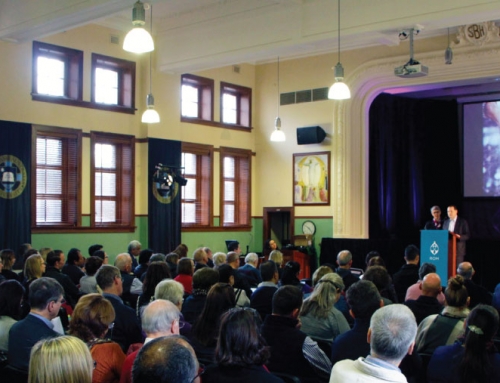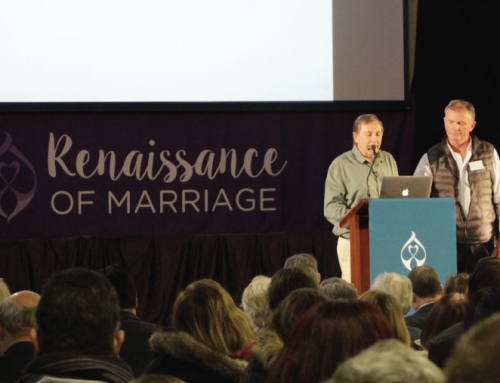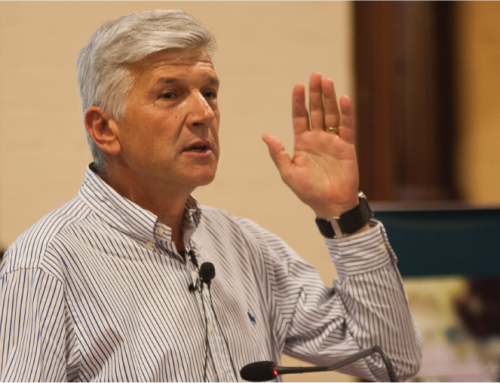Matthew MacDonald
KAIROS Article – The Gospel and the kitchen table
Over one uni summer break, I returned to the family home. As would happen from time to time at our place, I was met by a stranger. A friend of a friend of my parents needed a place to stay for a couple of weeks. She was from the country and had come to the city to have some counselling. Her marriage of some twenty years had broken down and she was really struggling.
Our family just did what it always did and she shared our life for two weeks – our meals, our arguments, our dirty dishes – she was just one of us for a while. At the end of the fortnight she thanked us for our hospitality and returned home.
I happened to be home again when she was passing through town some months later. She asked if she could stay again and was welcomed. Over dinner she remarked that on her previous visit, the experience of seeing a loving family – with all of its wrinkly imperfections – had done far more to help her through the pain of her separation than all the family therapy sessions put together. The therapy hadn’t been useless, but our unspoken (and unconscious) witness that love could be a reality in the ordinary everyday life of a family, spoke far more powerfully to her. It gave her hope.
Family – the school of love
In the opening words of his first encyclical, our current Pope recalled the words of the Apostle John, “God is love and he who abides in love abides in God and God in him”. We know how important the tender, self giving love of parents is to the healthy development of their children. John Paul II points out that this love within the family is not simply a reflection of God’s love, but a real participation in the life of the Trinity.(1) A family that love one another, mediate God’s love to those around them.
Elsewhere, John Paul wrote that we cannot live without love; its absence makes us incomprehensible to ourselves. If love isn’t revealed to us – if we don’t encounter it, experience it, make it our own, if we don’t participate intimately in it – our lives are senseless.(2)
Within the family we first touch love. There we first feel its tenderness and affection, we learn of sharing and of self sacrifice. But if people lose touch with a healthy loving family, how can they continue to be nourished and reintroduced to the life and love of God which it mediates? If the natural path through which all of humanity must pass to experience love is shut, who will open it?
In his Papal Exhortation on the Role of the Christian Family in the Modern World, Pope John Paul II made the point that evangelisation – bringing to others the message of Christ’s love – will in this age depend to a large extent on the family – the Domestic Church.(3) What did he mean?
The role of the Domestic Church
Among the early Christians, the notion of the family as a “small scale” or Domestic Church was common and featured prominently in the writing of St John Chrysostom, among others. It was revived by the Fathers of the Second Vatican Council and Pope John Paul II made it a central theme of his 1981 Apostolic Exhortation on the role of the family, Famillaris Consortio.
God himself has underlined the centrality of the family’s role in human development. He enters and participates in it. Within the household of Joseph and Mary, Jesus “grew in wisdom and stature” (Lk 2:52). Ordained in creation to be the path through which the future of all humanity passes, the family is raised in Christ to a new level of holiness.(4)
Our families then, as Domestic Churches, have a critical role to play in reaching out and sharing the love of Christ. Pope John Paul II saw this not just as a noble aspiration, but as a work of love and compassion from which the Christian family cannot turn away. “Families, become what you are!” he said, “communities of life and love”.(5) Because the family, through the sacraments of marriage and baptism not only images, but actually participates in the life and love of the Trinity, it must also give like the Trinity. For this reason Christian families “cannot remain closed in on themselves but must remain open to the world” and take up their mission “to guard, reveal and communicate love.”(6)
Having received such a precious gift we must share it. We who have been evangelised, who have felt the love of God through our families, who have been the object of God’s love – must now become subjects of evangelisation – sharing the blessing we have received with others.
Around us we see so many people who have become estranged from, or worse still, never really had an experience of authentic love. We see the most basic social cell of society – the nuclear family – being, like a nuclear bomb, split with a catastrophic effect.(7)We have “blended” families where people and relationships are put in a blender so to speak – and so furiously spun and mixed together as to barely retain any resemblance to their natural state. For so many, the familial experience of love – so essential to human flourishing – becomes difficult if not impossible to find. We might hardly be surprised to see so many people searching for love in harmful and destructive places.
We meet these people in our neighbourhood, at the supermarket, when we pick up the kids from school or at footy training. If they are not entering our churches they are unlikely to hear of God’s love from a pulpit. But, as John Paul II would suggest, if we invite them, they will very likely enter our Domestic Church and experience God’s love. Though often beyond the reach of our priests, they are rubbing shoulders with us. By the grace of God, in our sharing a cup of coffee, a BBQ or a Sunday roast, they may, in time and through our gentle but unwavering witness of Christian love, join us at the table of the Lord.
Who will you share your table with this week?
(1) FC #17
(2) John Paul II Redemptor Hominis #10
(3) John Paul II Famillaris Consortio #52
(4) FC #81
(5) FC #17
(6) FC #52
(7) Eric McLuhan The Family and the Electronic Age in Mass Media and the Family, Proceedings of the International Congress on the Family (Milan, CSE 1980)






